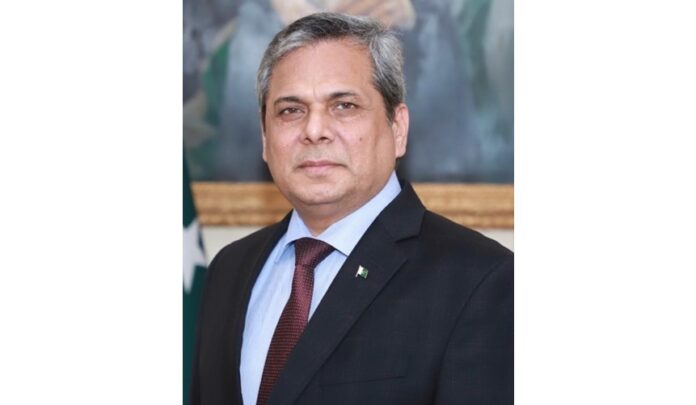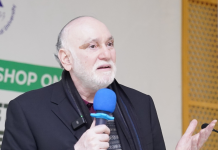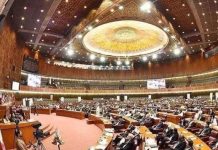Dr. Mohammad Nafees Zakaria
Terrorism is condemnable. Terrorism sponsored by a UN Member on the soil of another UN sovereign member is a punishable crime, whether it is seen under domestic law or International. When these terrorist acts are committed by a UN Member state on a community discriminated against for their belief, religion or culture with the aim of exterminating or terrorizing to deter or suppress them, or for causing displacement or mass exodus or crush their right to self-determination, then it falls in the domain of Crimes Against Humanity for which there are International Laws, Conventions and Judicial Mechanisms to call the perpetrators to account, irrespective of whether the sponsors are states or individual perpetrators.
India, the so-called world’s largest democracy (mocker racy) has history of wars against people of various ethnic, religious and culture orientations including the Naxal-Maoist people, Sikh Community, peoples of the Seven states namely; Assam, Meghalaya, Tripura, Arunachal Pradesh, Mizoram, Manipur and Nagaland.
Successive Indian Governments have been endeavouring to suppress and terrorise these communities. Persecution of the people belonging to the identified states and Jammu & Kashmir have been going on during successive Indian governments but it became more pronounced making headlines in the international media constantly ever since BJP Government under Modi’s leadership assumed the helm.
Extrajudicial killings, public lynchings, Enforced disappearances, and demographic changes are the hallmarks of PM Modi’s regime.
International Community’s apathy, particularly the criminal silence maintained by the United States of America, which is nurturing India as a counterweight to China, and the double standards of the world’s champions of democracy and human rights, have encouraged India so much that it has started carrying out assassinations of the leaders of the Sikh community on foreign soils.
Assassination of Canadian Sikh Hardeep Singh Nijjar in Surrey, British Columbia, in June this year sent shock waves across the globe.
Early this month, the US Department of Justice announced that it had foiled an alleged plot by an Indian official to assassinate a Sikh Activist and American Citizen in New York City.
It is important to assess the reactions of both the US and Canada following the assassination in Canada of its citizen and the unearthing of assassination plot in the US.
Canadian Security Intelligence Service (CSIS) submitted a report in 2017 to warn the Canadian Government that Indian Intelligence Agency RAW’s networks in Canada were planning attacks on Sikhs in Canada and influence elections in Canada with Indian diplomatic mission’s facilitation. The Report identified two diplomats. CSIS had irrefutable evidence of Indian maneuvering in 2016 elections. But vested interest refrained Canadian Government from taking action. The Indian activities continued while the Canadian Government looked the other way.
However, the assassination of Hardeep Singh Nijjar compelled PM Justin Trudeau to reveal before the parliament that at G-20 he had told US President Joe Biden and PM Modi of India that India had killed Nijjar. Trudeau then went public.
US Government’s reaction to the Indian involvement in the killing of Nijjar has been a muted one. Even after US Justice Department’s unearthing of assassination plot and US Canada close working under 5 Eye Intelligence Mechanism, there had not been any reaction of consequence to India. USA had always envisioned India as a lynchpin of its policy towards Asia Pacific to counter the China’s exponential economic rise as a challenger to the US dominance and Russian assertion of its military might. The USA’s vested interest to court India as its proxy in the region of its two historical Great Game adversaries and challengers, United States has crossed all limits to favour India.
It did not sanction India over purchase of S-400 missiles from Russia while it sanctioned the others for the same breach of the US sanctions Act called ‘Countering American Adversaries Through Sanctions Act (CAATSA) of 2017.’ The US also did not object to Indian overtures with Iran despite the US sanctions against Iran. The US has been massively assisting India to build its arms with technology transfer. The US has signed three foundational and strategically very sensitive agreements during 2016-2020, called LEMOA, COMCASA and BECA. The USA exercises double standards selectively. Besides India in Asia-Pacific, USA courts relations with Israel in view of its strategic interests in the oil rich Middle East. Currently, a case in point is American cruel bias against Palestine in the face of ongoing genocide by Israel in Gaza.
Given the US influence over Australia and its practical demonstration on a number of occasions, it can’t be ruled out that Australian discrimination against the Sikhs whereby it did not allow the Referendum for Khalistan, recently, could be under pressure of the US.
Indian condemnable act of assassination of Hardeep Singh achieved two objectives. One, messaging to the Sikhs pursuing Khalistan movement that they were not beyond India’s reach regardless of their location. Two, embarrass Canada for rejecting Indian objections to allowing Khalistan Referendum in Canada in September 2022 and issuing adverse travel advisory for visitors to India. It was a message for the Canadian leadership that India could kill its citizens at will and couldn’t do damn about it.
Even though India conspired to kill a Canadian citizen in their sovereign territory, the reaction was not close to what any other sovereign state would have taken. Lack of warranted reaction damaged Canada’s reputation among its own citizens and expatriates’ community.
Canada remains massively under the USA influence given Canada’s economic and commercial dependence on the US to the extent of 80%.
There is no doubt India mastered the art of staging terrorist attacks not just on its own soil while blaming others but also on foreign soils.
Use of foreign soil for perpetrating terrorism by India is not a new phenomenon. A person none other than the US Secretary of Defence, Chuck Hagel, said in 2011 that: “India Finances Trouble in Afghanistan’s neighbouring country using Afghan soil.
His statement was later authenticated by the voluntary statements made by Ehsanullah Ehsan, who was first the spokesperson for the terrorist organizations viz. TTP and later Jamaat ul Ahrar (JuA). Ehsan shared how Indian state agency RAW funded the two terrorist organizations for terrorist activities.
Departure of British Empire from the sub-Continent was envisaged as ushering in an era for coming into existence of a number of new states. Sikhs were among the significant entities with their history of sovereignty in line with the Sikh religious teachings of the founder of Sikhism, Guru Nanak. They eyed for Punjab to be their Khalistan but with Muslims majority, Punjab was divided. However, the connivance between the British Empire and Hindu Leaders was instrumental in the drawing of boundaries with inferior designs.
Sikhs have ruled the part of the Sub-continent during 19th century under Maharaja Ranjit Singh and fought wars with the British Imperial Forces. It would not be beyond conception to think that the British adversarial past with the Sikh Empire and Hindus being Sikh Empire’s subjects, devised the lasting problematic partition plan for 1947. Indian hostility against Sikh community is the most targeted one. The region and its people have been in turbulence ever since. Mistreatment of Sikhs as a minority, set an impetus to their separatist campaign called Khalistan Movement. 2023 witnessed overwhelming votes in a referendum in favour of an independent state for the Sikhs.
In 1984, the then Indian PM Indra Gandhi ordered ‘Operation Blue Star’ to crush Khalistan Movement. Sikhs leadership was targeted while Sikh Temples or Gurdwaras including their most sacred Golden Temple. Were destroyed. A large number of Sikh leaders were killed in the operation.
There are numerous reports of inhuman treatment meted out to the Sikh minority in India including Amnesty International, Human Rights Watch and other world human rights organizations. The assassination on foreign soil if goes unpunished it will set an ugly precedent that would render the UN and International Conventions irrelevant.
Ambassador Dr. Mohammad Nafees Zakaria is a seasoned diplomat with expertise in Peace and Security, having served in various international roles. He is the Founder Patron-in-Chief of the Belt and Road Initiative for Sustainable Development (BRISD) and can be reached at [email protected].

















